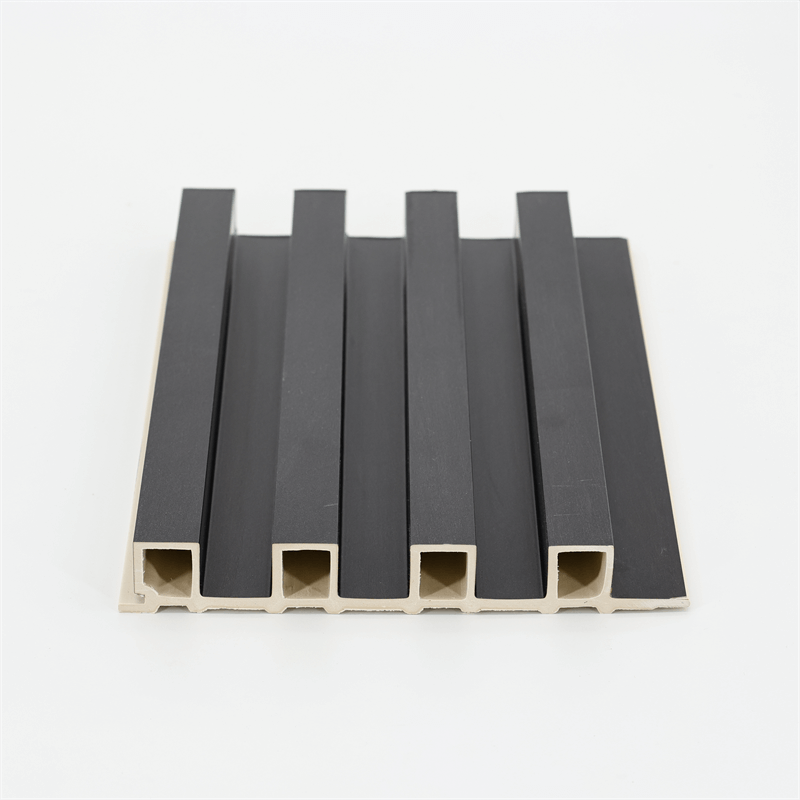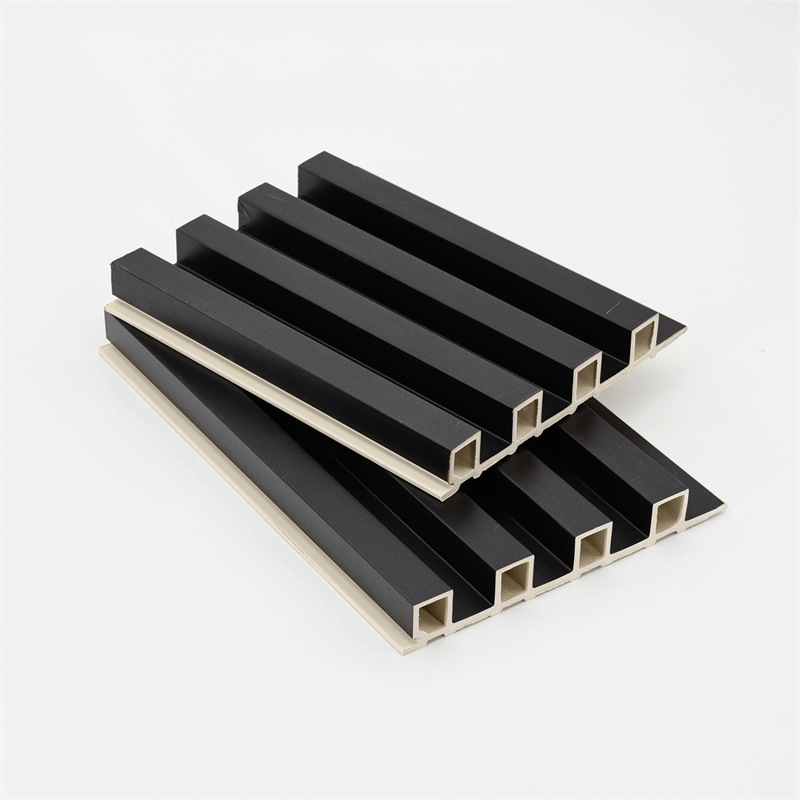Sustainable construction practices have become a crucial aspect of the building industry, driven by the need to minimize environmental impact and promote long-term resource conservation.
Wood-Plastic Composite (WPC) wall panels have emerged as a sustainable alternative, offering a range of advantages in sustainable construction.
This essay explores the benefits of WPC wall panels in sustainable construction, discussing their eco-friendly nature, durability, energy efficiency, and contribution to indoor air quality.
I. Eco-Friendly Nature of WPC Wall Panels:
WPC wall panels are widely recognized for their eco-friendly characteristics, making them an ideal choice for sustainable construction.
This section delves into the eco-friendly features of WPC wall panels:
- Use of Renewable Materials: One of the primary components of WPC wall panels is wood fibers or flour sourced from sustainably managed forests. By utilizing wood from responsibly harvested forests, WPC panels promote the conservation of natural resources and support sustainable forestry practices.
- Integration of Recycled Content: Many WPC wall panels incorporate recycled materials, such as post-consumer plastics or wood waste. By utilizing these recycled components, WPC panels contribute to the reduction of waste and the conservation of landfill space. This recycling process also reduces the demand for virgin materials and decreases the environmental impact associated with their extraction and manufacturing.
- Lower Carbon Footprint: Compared to traditional building materials, the production of WPC wall panels requires less energy and emits fewer greenhouse gases. This lower carbon footprint contributes to a reduced environmental impact during the manufacturing process. Additionally, the longevity and durability of WPC panels further contribute to their overall environmental sustainability by minimizing the need for frequent replacements and reducing waste generation.
II. Durability and Longevity:
WPC wall panels offer exceptional durability and longevity, making them an attractive option for sustainable construction projects.
This section explores the durability advantages of WPC wall panels:
- Moisture and Rot Resistance: Unlike traditional wood materials, WPC wall panels are resistant to moisture, rot, and decay. This inherent resistance enables them to withstand humid environments and moisture-prone areas, such as bathrooms and kitchens, without succumbing to damage or degradation. The increased durability of WPC panels ensures their longevity and reduces the need for frequent repairs or replacements.
- Pest Resistance: Another advantage of WPC wall panels is their resistance to pests, such as termites and insects, which can cause significant damage to traditional wood-based materials. By eliminating the risk of pest infestations, WPC panels alleviate the need for chemical treatments and reduce the potential environmental harm associated with pesticide use.
- Weather Resistance: WPC wall panels exhibit excellent weather resistance, allowing them to withstand extreme temperatures, UV radiation, and harsh environmental conditions. This resilience to weather elements ensures that the panels retain their structural integrity over time, reducing the need for frequent maintenance and replacements. By maintaining their quality and appearance for an extended period, WPC panels contribute to sustainable construction practices by minimizing material waste and resource consumption.
III. Energy Efficiency and Insulation:
Energy efficiency is a key aspect of sustainable construction, and WPC wall panels offer notable advantages in this regard.
This section discusses the energy efficiency benefits of WPC wall panels:
- Thermal Insulation: WPC panels possess inherent thermal insulation properties, providing a barrier against heat transfer between the interior and exterior of a building. By minimizing heat loss during colder seasons and reducing heat gain during warmer months, WPC wall panels contribute to improved energy efficiency. This thermal insulation capability reduces the reliance on heating and cooling systems, leading to lower energy consumption and reduced greenhouse gas emissions.
- Noise Insulation: In addition to thermal insulation, WPC wall panels also offer excellent noise insulation properties. Their sound absorption characteristics help minimize noise transmission between rooms and from external sources, creating a quieter and more comfortable indoor environment. By reducing the need for additional soundproofing materials, WPC panels contribute to sustainable construction practices and enhance occupant comfort.
IV. Contribution to Indoor Air Quality:
Indoor air quality plays a significant role in creating healthy and sustainable living and working environments.
This section highlights the positive impact of WPC wall panels on indoor air quality:
- Low VOC Emissions: Volatile Organic Compounds (VOCs) released from building materials can have adverse health effects on occupants. WPC wall panels have low VOC emissions, minimizing indoor air pollution and promoting better air quality. By choosing WPC panels, sustainable construction projects can create healthier indoor environments that prioritize the well-being of occupants.
- Mold and Mildew Resistance: Moisture-related issues, such as mold and mildew growth, can significantly impact indoor air quality and pose health risks. The moisture resistance of WPC wall panels prevents the growth of mold and mildew, reducing the risk of respiratory issues and allergies associated with poor indoor air quality. By fostering a healthy living or working environment, WPC panels contribute to sustainable construction practices that prioritize occupant health and well-being.

WPC wall panels offer significant advantages in sustainable construction, making them an ideal choice for environmentally conscious builders.
Their eco-friendly nature, durability, energy efficiency, and positive impact on indoor air quality contribute to sustainable construction practices.
By utilizing WPC wall panels, construction projects can reduce their environmental footprint, promote resource conservation, and create healthier and more resilient buildings.
As the construction industry continues to prioritize sustainability, WPC wall panels will play a crucial role in shaping the future of sustainable construction practices.


